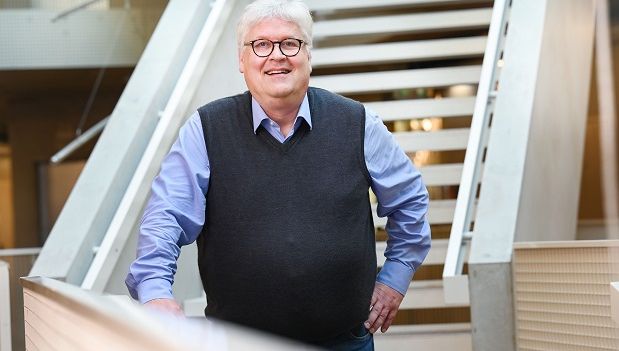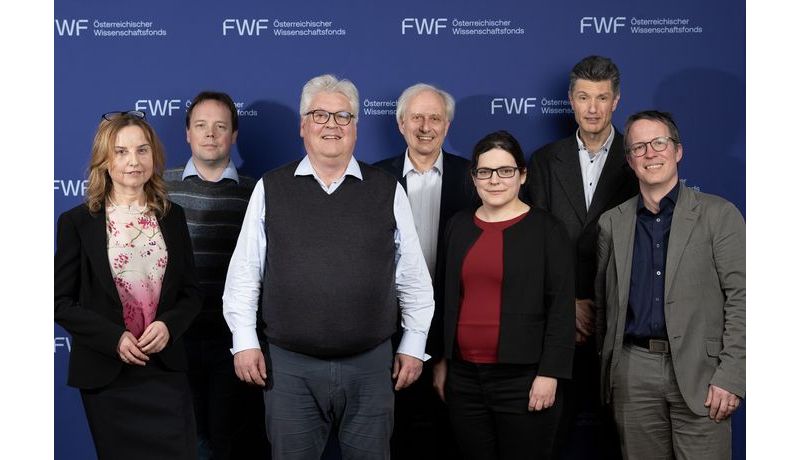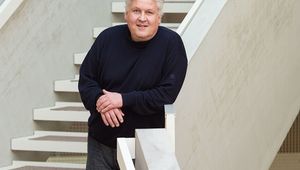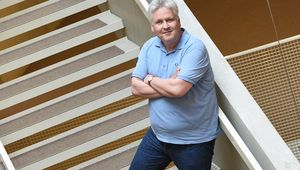Funding of up to €70 million will be available to conduct base-knowledge research into artificial intelligence.

Under the leadership of Sepp Hochreiter, an AI pioneer at the Johannes Kepler University Linz, the new Austrian Science Fund ‘Cluster of Excellence’ supports bringing leading Austrian researchers and scholars in the field of artificial intelligence (AI) together in an effort to develop a new level of AI, so-called “Broad AI”, to, for example, deliver significantly better and broader problem-solving capabilities than ChatGPT.
In an initial statement, JKU Rector Stefan Koch expressed his enthusiasm: “When it comes to the future, AI is arguably one of the most important topics. Being involved in this area is all the more important as nations, such as China and the USA - as well as industry-leading corporations - are currently in a race to dominate this enormously important technology. The JKU has been conducting cutting-edge research in the field of artificial intelligence and machine learning in Europe for years at numerous institutes and at the LIT AI Lab. The new Austrian Science Fund ‘Cluster of Excellence’ acknowledges these accomplishments and is extremely valuable, both for our university and our region in terms of science and research. Their success demonstrates just how broadly the JKU is involved in the field of AI. I would like to congratulate everyone on their outstanding research accomplishments over many years under the leadership of Prof. Sepp Hochreiter, and I wish them a very rewarding and productive project.”
Under the leadership of the JKU, the Austrian Science Fund ‘Cluster of Excellence’ (CoE) is funding the “Bilateral AI” research project, bringing the two most important lines of research in the field of artificial intelligence to date together, namely sub-symbolic AI (machine learning) and symbolic AI (knowledge representation and reasoning).
Under the direction of Sepp Hochreiter, the JKU’s LIT AI LAB, has been a long-standing hub for AI research in Europe and will lead the Cluster of Excellence project that involves researchers at the TU Vienna, the Vienna University of Economics and Business, the TU Graz, the University of Klagenfurt, and the Institute of Science and Technology Austria (ISTA).
Robert Legenstein, head of the Institute for the Foundations of Information Processing at the Graz University of Technology, remarked: “Six outstanding experts in the fields of symbolic and sub-symbolic AI from the Graz University of Technology are contributing significantly to research within the Cluster of Excellence and investigating, among other things, how to make AI systems more broad-based by using the model of the human brain or semi-symbolic methods, as well as how 'Broad AI' can be made trustworthy, transparent, comprehensible and compliant with ethical principles. The Graz University of Technology is also responsible for the cluster's PR work.”
“Broad AI” - A new level of artificial intelligence
The project aims to combine symbolic and sub-symbolic AI. The common objective involves developing the required basis to support a new level of artificial intelligence, so-called “Broad AI”. Broad AI is expected to not only demonstrate higher problem-solving capabilities, but also possess the capability to deal with abstractions. This means that instead of focusing on a specific area of application, Broad AI could potentially come up with its own conclusions, thereby exhibiting comprehensive cognitive abilities. Current AI programs, such as the language models currently attracting attention (such as ChatGPT), merely evaluate available data; the new AI could conceivably even invent its own terms and work creatively in a narrow sense.
Prof. Dr. Sepp Hochreiter: “We use AI systems, such as ChatGPT, almost daily. They can do what they were designed to do but beyond that, they are fairly useless. Our vision for 'Broad AI' means pooling our expertise in Austrian AI research to create a new level of artificial intelligence that we can all benefit from. We are honored to be part of the Cluster of Excellence and while it confirms our research work to date, it is also an incentive to continue advancing artificial intelligence sustainably for the benefit of people and our society.”
Concentrated AI Expertise from Austria
Gerti Kappel, Dean of the Faculty of Computer Science at the TU Vienna: “We want to develop ‘Broad AI’ to incorporate ethical principles, display more comprehensive cognitive abilities, and have a deeper understanding of the world. This new form of AI will be capable of adapting flexibly to different challenges and environments, bringing the latest findings from our outstanding AI researchers centered around co-project leader, Thomas Eiter, together. The project also incorporates the TU Vienna's proven strengths in the field of digital humanism and AI ethics. By incorporating these principles, 'Broad AI' seeks to enhance human capabilities and simultaneously ensure that technological advances comply with ethical standards and social values.”
The unique bilateral partnership brings both lines of research (symbolic and sub-symbolic AI) together, allowing AI to learn by means of graph neural networks and using both computer power to process large amounts of data as well as learning methods modeled based on the human brain.
Axel Polleres (Vienna University of Economics and Business, and a member of the Board of Directors within the new Cluster of Excellence) explains: “The project is not only aimed at supporting cross-location AI research in different locations, but also combining two of the most important methods of AI, symbolic and sub-symbolic AI. It is a major initial step to more effective AI research and applications made in Austria!”
Gerhard Friedrich (Institute for Artificial Intelligence and Cybersecurity at the University of Klagenfurt) believes now is the time: “Our research teams have focused mainly on resolving difficult and large-scale problems based on precise mathematical descriptions. The Cluster of Excellence supports working together, which is a big step forward. 'Bilateral AI' will generate findings that could potentially solve planning and design challenges which are, for example, fairly impossible to solve at the moment without human intervention. There has never been a better time for research in the field of artificial intelligence. Our experts at the University of Klagenfurt are available to support advances in the field of logic-based AI systems and real-world applications.”
Supporting a more sustainable society
The “Broad AI” resulting from the “bilateral AI” approach would use its own sensory perceptions to perform abstractions and engage in a logical thinking process. The AI could then, for example, organize a trip, minimize carbon emissions, or renovate a house as cost-effectively and ecologically as possible. In other words, AI could perform complex planning taking all aspects into account.
Sepp Hochreiter added: “Broad AI could potentially improve our everyday lives as well as system-relevant aspects and processes - such as energy, transportation and healthcare - by becoming more environmentally sustainable, efficient and resource-friendly.”
Professor Christoph Lampert (Institute of Science and Technology Austria (ISTA) in the Cluster's Board of Directors) agrees: “The four research groups involved at ISTA are already involved in combining research on symbolic and sub-symbolic AI, and we look forward to growing this Cluster network together with other leading researchers here in Austria. We are also looking forward to complementing the European network within ELLIS. Together, we can help drive the next level of AI development forward to become a more sophisticated system able to adapt itself flexibly to different situations. At the same time, we expect AI to become more reliable, which is an essential prerequisite if the public is to place more trust in the technology. Understandably, people would like to see an AI that doesn't delude itself but rather is capable of making comprehensible and reliable decisions. My colleagues at ISTA and I would like to help make this happen.”
Funded initially with €33 million for al five-year period, the ‘Cluster of Excellence’ could be extended to a ten-year period and receive a total of €70 million in funding. The project is also indirectly affiliated to other European AI initiatives as Prof. Hochreiter's team is also involved with ELLIS. Research institutions from across the EU share information about their in developing new AI systems as part of the European Laboratory for Learning and Intelligent System.












